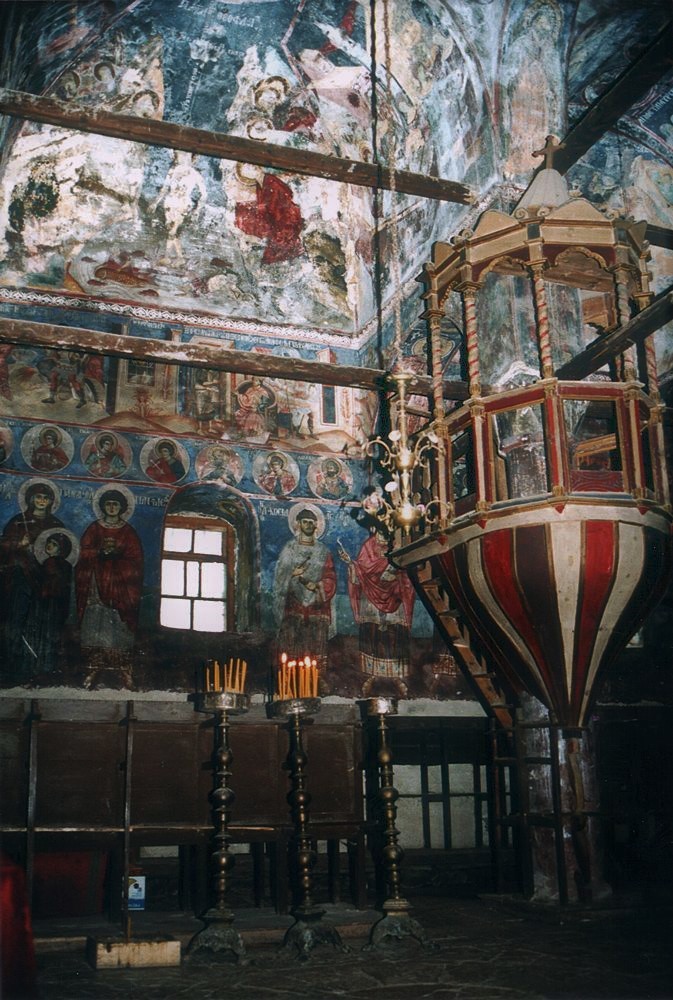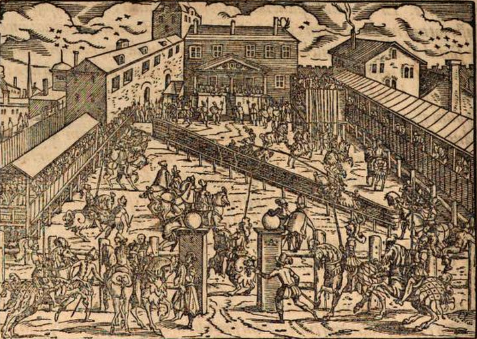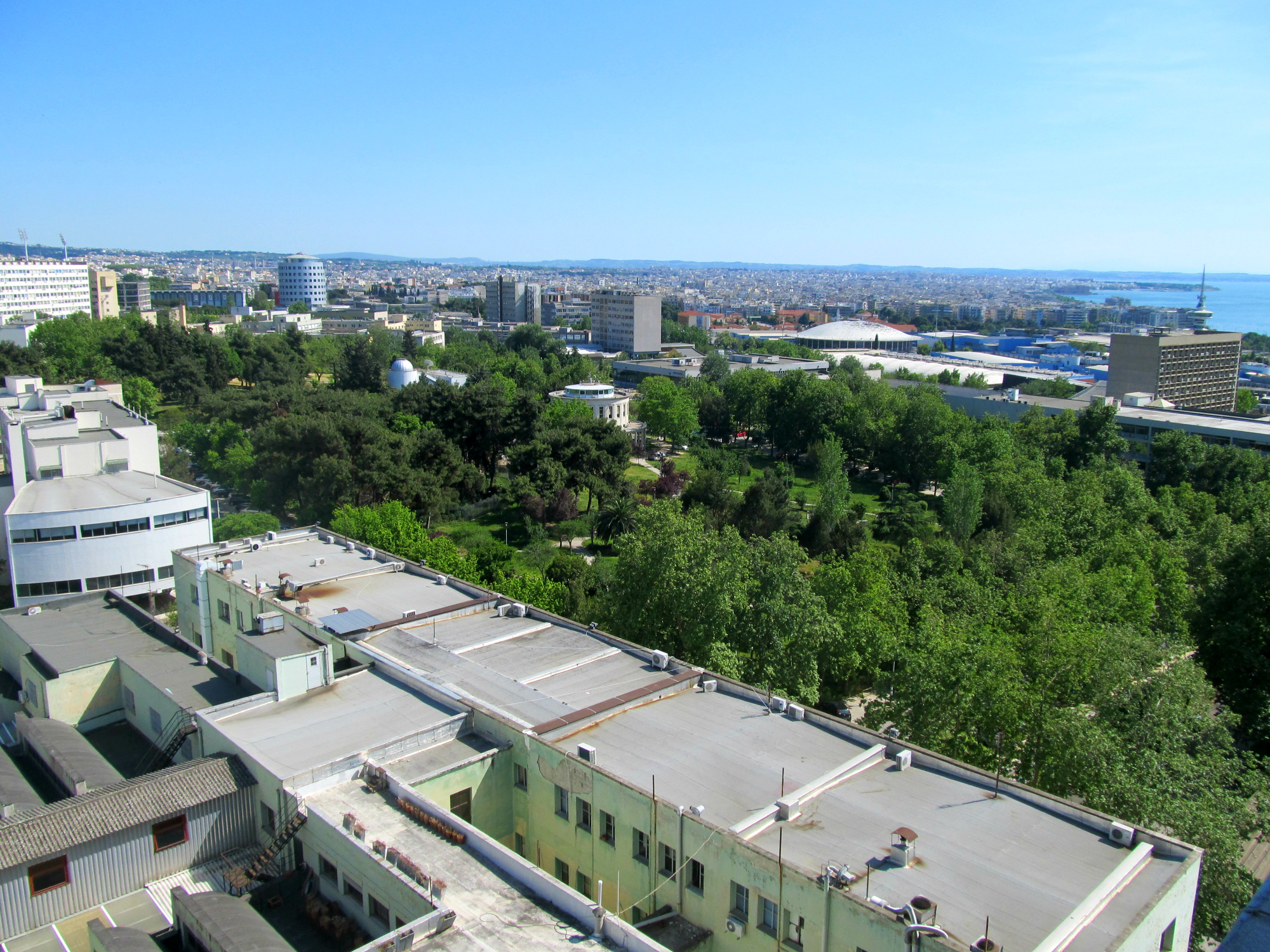|
Konstantinos Tzechanis
Konstantinos Tzechanis (, , , 1740–1800) was a philosopher, mathematician and poet from the 18th century Aromanian center of Moscopole. Life Tzechanis was born in Moscopole (Voskopojë, southeast Albania), an 18th-century cultural and commercial metropolis of the Balkans and center of Greek culture. His ethnicity is disputed, with various sources claiming that he is of Albanian, Aromanian or Greek origin. Tzechanis initially studied in his home town with Theodore Kavalliotis being his teacher in the New Academy. He later attended lessons in Modra, today in Slovakia. At 1760, he moved together with his parents to Vienna, where his father became a merchant. Tzechanis became a teacher at the Greek schools of Temesvár, Pest and Zemun.Apostolos Euangelou Vakalopoulosof Macedonia, 1354-1833'' Institute for Balkan Studies, 1973, p. 408. Later in 1768–74 he went to Halle, then a city of the Kingdom of Prussia, to study literature and mathematics, and in 1776 he studied in ... [...More Info...] [...Related Items...] OR: [Wikipedia] [Google] [Baidu] |
Moscopole
Moscopole or Voskopoja (; , with several other variants; ) is a village in Korçë County in southeastern Albania. During the 18th century, it was the cultural and commercial center of the Aromanians. At its peak, in the mid 18th century, it hosted the first printing house in the Ottoman Balkans outside Constantinople, educational institutions and numerous churches. It became a leading center of Greek culture but also with elements of Albanian and Aromanian culture, all with great influence from Western civilization. One view attributes the decline of the city to a series of raids by Muslim Albanian bandits. Moscopole was initially attacked and almost destroyed by those groups in 1769 following the participation of the residents in the preparations for a Greek revolt supported by the Russian Empire. Its decline culminated with the destruction of 1788 and the flight of its population. Moscopole, once a prosperous city, was reduced to a small village by Ali Pasha of Ioannina. ... [...More Info...] [...Related Items...] OR: [Wikipedia] [Google] [Baidu] |
Skanderbeg
Gjergj Kastrioti (17 January 1468), commonly known as Skanderbeg, was an Albanians, Albanian Albanian nobility, feudal lord and military commander who led Skanderbeg's rebellion, a rebellion against the Ottoman Empire in what is today Albania, North Macedonia, Greece, Kosovo, Montenegro, and Serbia. A member of the noble House of Kastrioti, Kastrioti family, Skanderbeg was sent as a hostage to the Ottoman court. He graduated from the Enderun School and entered the service of the Ottoman sultan Murad II () for the next twenty years. His rise through the ranks culminated in his appointment as of the Sanjak of Dibra in 1440. During the Battle of Nish (1443), Battle of Nish in 1443, he deserted the Ottomans and Liberation of Kruja (1443), became the ruler of Krujë and nearby areas extending from Petrelë to Modrič, Struga, Modrič. In March 1444, he established the League of Lezhë, with support from Albanian nobility, local noblemen, and unified the Albanian principalities. In ... [...More Info...] [...Related Items...] OR: [Wikipedia] [Google] [Baidu] |
Aromanian Language
The Aromanian language (, , , , , or , , ), also known as Vlach or Macedo-Romanian, is an Eastern Romance languages, Eastern Romance language, similar to Megleno-Romanian language, Megleno-Romanian, Istro-Romanian language, Istro-Romanian and Romanian language, Romanian, spoken in Southeast Europe, Southeastern Europe. Its speakers are called Aromanians or Vlachs (a broader term and an Endonym and exonym, exonym in widespread use to define Romance communities in the Balkans). Aromanian shares many features with modern Romanian language, Romanian, including similar morphology and syntax, as well as a large common vocabulary inherited from Latin. They are considered to have developed from Common Romanian, a common stage of all the Eastern Romance varieties. An important source of dissimilarity between Romanian and Aromanian is the Stratum (linguistics)#Adstratum, adstratum languages (external influences); whereas Romanian Slavic influence on Romanian, has been influenced to a g ... [...More Info...] [...Related Items...] OR: [Wikipedia] [Google] [Baidu] |
Albanian Language
Albanian (Endonym and exonym, endonym: , , or ) is an Indo-European languages, Indo-European language and the only surviving representative of the Albanoid, Albanoid branch, which belongs to the Paleo-Balkan languages, Paleo-Balkan group. It is the native language of the Albanian people. Standard Albanian is the official language of Albania and Kosovo, and a co-official language in North Macedonia and Montenegro, where it is the primary language of significant Albanian minority communities. Albanian is recognized as a minority language in Italy, Croatia, Romania, and Serbia. It is also spoken in Greece and by the Albanian diaspora, which is generally concentrated in the Americas, Europe and Oceania. Albanian is estimated to have as many as 7.5 million native speakers. Albanian and other Paleo-Balkan languages had their formative core in the Balkans after the Indo-European migrations in the region. Albanian in antiquity is often thought to have been an Illyrian language for ob ... [...More Info...] [...Related Items...] OR: [Wikipedia] [Google] [Baidu] |
Aristotle University Of Thessaloniki
The Aristotle University of Thessaloniki ( AUTh; ), often called the University of Thessaloniki, is the second oldest tertiary education institution in Greece. Named after the philosopher Aristotle, who was born in Stageira, about east of Thessaloniki, it is the largest university in Greece and its campus covers in the centre of Thessaloniki, with additional educational and administrative facilities elsewhere. As of 2023, it has approximately 88,283 active students enrolled at the university (77,198 at the undergraduate level and 6,588 in postgraduate programmes of which 3,952 at doctoral level) and 2,366 faculty members. There are additionally 248 members of the Laboratory Teaching Staff and 213 members of the Special Technical Laboratory Staff. The administrative staff consists of 400 permanent employees and 528 subcontractor employees that are contracted by the university. The language of instruction is Greek, although there are programs in foreign languages and courses f ... [...More Info...] [...Related Items...] OR: [Wikipedia] [Google] [Baidu] |
Johann Thunmann
Johann Erich Thunmann or Johannes or Hans (23 August 1746 — 17 December 1778) was a linguist, historian and theologian born in Thoresund (Södermanland) in Sweden. He studied at Strängnäs and Uppsala then left Sweden to study at Greifswald. Thunmann was professor of philosophy at the University of Halle. "Eastern Europeans" Thunmann made extensive study of the peoples of Eastern Europe. He was the first author to use the term "Eastern Europeans" in a book title, in his ''Untersuchungen über die Geschichte der östlichen europäischen Völker'', 1774. Thunmann's work served as a liberal agenda for nations without nation states. Thunmann was one of the scientists who did not believe that Bulgarians are Slavs, or at least not "pure Slavs". He believed that Vlachs are descendants of old Thracian and Dacian tribes or Getic people. In 1825, based also on Thunmann's works, Mikhail Pogodin wrote his thesis "On the origins of the Rus'" which supports the Normanist theory of Russia ... [...More Info...] [...Related Items...] OR: [Wikipedia] [Google] [Baidu] |
Squaring The Circle
Squaring the circle is a problem in geometry first proposed in Greek mathematics. It is the challenge of constructing a square (geometry), square with the area of a circle, area of a given circle by using only a finite number of steps with a compass and straightedge. The difficulty of the problem raised the question of whether specified axioms of Euclidean geometry concerning the existence of Line (geometry), lines and circles implied the existence of such a square. In 1882, the task was proven to be impossible, as a consequence of the Lindemann–Weierstrass theorem, which proves that pi (\pi) is a transcendental number. That is, \pi is not the zero of a function, root of any polynomial with Rational number, rational coefficients. It had been known for decades that the construction would be impossible if \pi were transcendental, but that fact was not proven until 1882. Approximate constructions with any given non-perfect accuracy exist, and many such constructions have been f ... [...More Info...] [...Related Items...] OR: [Wikipedia] [Google] [Baidu] |
Wallachia
Wallachia or Walachia (; ; : , : ) is a historical and geographical region of modern-day Romania. It is situated north of the Lower Danube and south of the Southern Carpathians. Wallachia was traditionally divided into two sections, Muntenia (Greater Wallachia) and Oltenia (Lesser Wallachia). Dobruja could sometimes be considered a third section due to its proximity and brief rule over it. Wallachia as a whole is sometimes referred to as Muntenia through identification with the larger of the two traditional sections. Wallachia was founded as a principality in the early 14th century by Basarab I after a rebellion against Charles I of Hungary, although the first mention of the territory of Wallachia west of the river Olt dates to a charter given to the voivode Seneslau in 1246 by Béla IV of Hungary. In 1417, Wallachia was forced to accept the suzerainty of the Ottoman Empire; this lasted until the 19th century. In 1859, Wallachia united with Moldavia to form the Un ... [...More Info...] [...Related Items...] OR: [Wikipedia] [Google] [Baidu] |
Leipzig
Leipzig (, ; ; Upper Saxon: ; ) is the most populous city in the States of Germany, German state of Saxony. The city has a population of 628,718 inhabitants as of 2023. It is the List of cities in Germany by population, eighth-largest city in Germany and is part of the Central German Metropolitan Region. The name of the city is usually interpreted as a Slavic term meaning ''place of linden trees'', in line with many other Slavic placenames in the region. Leipzig is located about southwest of Berlin, in the southernmost part of the North German Plain (the Leipzig Bay), at the confluence of the White Elster and its tributaries Pleiße and Parthe. The Leipzig Riverside Forest, Europe's largest intra-city riparian forest, has developed along these rivers. Leipzig is at the centre of Neuseenland (''new lake district''). This district has Bodies of water in Leipzig, several artificial lakes created from former lignite Open-pit_mining, open-pit mines. Leipzig has been a trade city s ... [...More Info...] [...Related Items...] OR: [Wikipedia] [Google] [Baidu] |
University Of Cambridge
The University of Cambridge is a Public university, public collegiate university, collegiate research university in Cambridge, England. Founded in 1209, the University of Cambridge is the List of oldest universities in continuous operation, world's third-oldest university in continuous operation. The university's founding followed the arrival of scholars who left the University of Oxford for Cambridge after a dispute with local townspeople. The two ancient university, ancient English universities, although sometimes described as rivals, share many common features and are often jointly referred to as Oxbridge. In 1231, 22 years after its founding, the university was recognised with a royal charter, granted by Henry III of England, King Henry III. The University of Cambridge includes colleges of the University of Cambridge, 31 semi-autonomous constituent colleges and List of institutions of the University of Cambridge#Schools, Faculties, and Departments, over 150 academic departm ... [...More Info...] [...Related Items...] OR: [Wikipedia] [Google] [Baidu] |
Kingdom Of Prussia
The Kingdom of Prussia (, ) was a German state that existed from 1701 to 1918.Marriott, J. A. R., and Charles Grant Robertson. ''The Evolution of Prussia, the Making of an Empire''. Rev. ed. Oxford: Clarendon Press, 1946. It played a significant role in the unification of Germany in 1871 and was a major constituent of the German Empire until its German Revolution of 1918–1919, dissolution in 1918. Although it took its name from the Prussia (region), region called Prussia, it was based in the Margraviate of Brandenburg. Its capital was Berlin. The list of monarchs of Prussia, kings of Prussia were from the House of Hohenzollern. The polity of Brandenburg-Prussia, predecessor of the kingdom, became a military power under Frederick William, Elector of Brandenburg, known as "The Great Elector". As a kingdom, Prussia continued its rise to power, especially during the reign of Frederick the Great, Frederick II "the Great".Horn, D. B. "The Youth of Frederick the Great 1712–30." ... [...More Info...] [...Related Items...] OR: [Wikipedia] [Google] [Baidu] |





